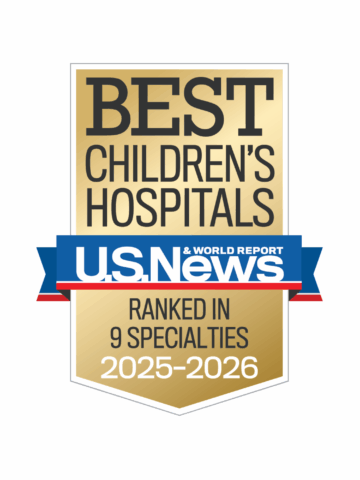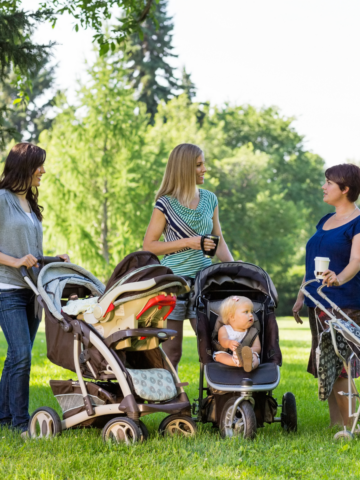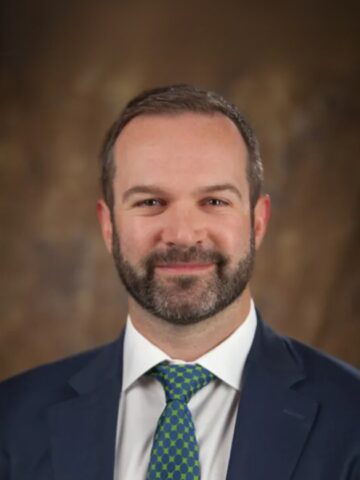Dr. J. Thomas Megerian, a pediatric neurologist and clinical director of the Thompson Autism and Neurodevelopmental Center at CHOC, recalls that when he began practicing in the 1990s, there were huge misconceptions about autism spectrum disorder (ASD). Now, he has yet to meet someone who doesn’t know a child with autism.
With the increased prevalence of ASD in kids — according to the CDC, in 2020, one in 36 8-year-olds had were identified as having ASD — there have been some positive changes regarding stigma.
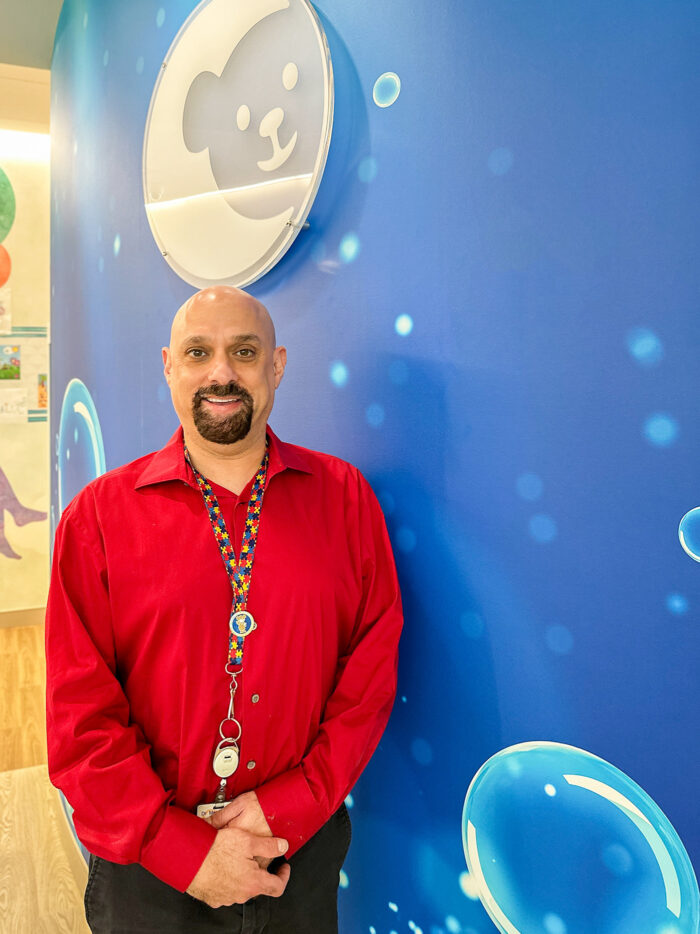
Yet, some lingering stigma about ASD remains today. In recognition of April’s Autism Awareness Month, Dr. Megerian explains four truths about autism and the acceptance that he and the team at the Thompson Autism and Neurodevelopmental and Neurodevelopmental and Neurodevelopmental Center advocates for.
Truth: Each child with ASD is different and needs respect
Sometimes people think that once they meet one child with autism, they’ve met them all, says Dr. Megerian. That’s not the case. Each child with ASD is different, and that is why it’s called autism spectrum disorder.
“I hope people realize how wide the autism spectrum really is,” says Dr. Megerian.
Different families may have different experiences with autism. Some families with high-functioning kids with autism may not believe in treatment, while other families may be really struggling with challenging behaviors caused by ASD, he says.
“I hope that people are open minded about ASD,” he says. “If you’ve met one person with autism, you’ve met one person with autism; there’s only one way to treat every single one of them: with respect.”
Truth: There is no single cause for autism
“When people ask, ‘What’s the cause of autism,’” says Dr. Megerian. “They’re asking the wrong question.”
That’s like asking what the cause of cancer is, he says. Because the next question that people who are in the medical field would ask is, “Well, what cancer are you talking about? Are you talking about lung cancer? Liver cancer? Pancreatic cancer?”
All these cancers are completely different diseases, Dr. Megerian explains. They have the shared common phenomenon of uncontrolled cell growth, but the commonality ends there.
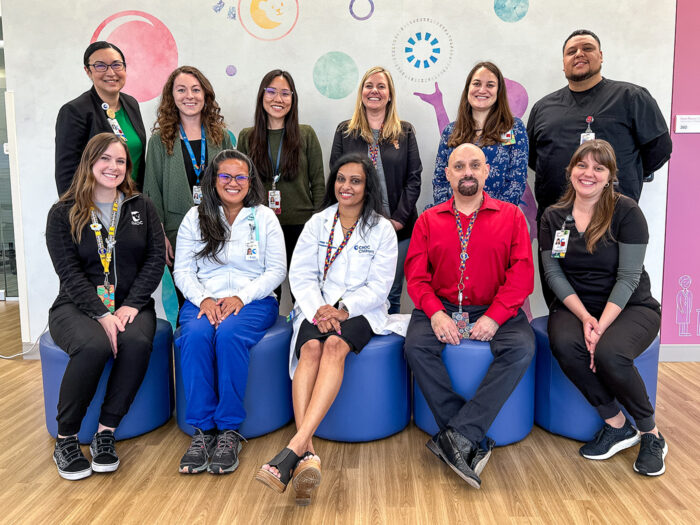
It’s the same with autism, he says. There is a core set of symptoms that autism presents with like impairment in socialization and communication and repetitive and restrictive behaviors. But how those symptoms manifest in each child is different; each child’s trajectory is different; the prognosis is different; and the causes are different.
There are over 100 genes implicated in causing autism, and likely more than that. That’s at least 100 different autism disorders — not just one, Dr. Megerian says.
Truth: Most kids with autism have additional diagnoses
The number of co-occurring conditions that kids with autism are diagnosed with far outweighs most other disorders, says Dr. Megerian. Kids with neurodevelopmental disabilities and autism have, on average, five other diagnoses.
These kids may have sleep disorders, gastroenterology (GI) disorders and neuropsychiatric disorders like anxiety, ADHD, depression and mood lability. They also have a higher frequency of intellectual disabilities, seizure disorders and motor coordination disorders.
“We are fortunate that at CHOC, we can take a multidisciplinary approach to visits with our patients. We can bring in GI, epilepsy and sleep specialists, we have psychology on site and psychiatry so that we can take care of those all of those different co-occurring conditions — usually in a single visit,” says Dr. Megerian. “Then, our specialists work together to say, ‘OK, what’s the best medication or treatment plan that can take care of multiple problems?’”
“Rather than each of us working in our own silo, there are many times that we notice that certain medications or treatments can suffice to help with two or three of those disorders,” he adds.
In the future, Dr. Megerian hopes that the Thompson Autism and Neurodevelopmental Center can expand to provide other care services that may be difficult for kids and teens with ASD.
An example of this is the Families, Agencies and Schools Together (FAST) program, which is part of a partnership between the Thompson Autism and Neurodevelopmental Center and the Thompson Policy Institute at Chapman University which helps parents navigate the complexities of the educational system for their children, so they can be sure they are getting the best education services.
“We’d love to be able to offer barbershop services. We’re also trying to get dental in here so we can help ease the experience for kids who have sensory issues,” he says. “We want to be the bridge.”
Truth: Kids with ASD can achieve an admirable life
“With our young ASD patients, it may be hard to determine how much growth may be possible for them. But it’s our hope that the sky is the limit. As they grow and receive treatment, we hope they’ll develop more communication and life skills,” says Dr. Megerian.
Someone in the field coined the term, “enviable life,” as the life they hope to help their patients achieve. The team at the Center adopted this term as well, but adjusted it to “admirable life,” he says.
“We want our patients to have an admirable life; a life that people can look at and say, ‘Wow, that’s amazing. Look at what they’ve achieved in their life and how much progress they have made,’” says Dr. Megerian.
It might be a long-term goal for kids with autism to achieve such a life. But the team hopes that our patients will develop the skills to care for themselves completely, with only minimal assistance, he says. An admirable life may look different from one person to another. Some may live in group homes or communities that they are thrilled to be a part of, some may live with family and some may be able to live on their own.
“So, during Autism Awareness Month, I want people to really focus on people with different abilities — who maybe aren’t as fortunate in many ways as other people are — but who also have unique abilities that set them apart and allow them to live admirable lives,” says Dr. Megerian.
Learn more about the Thompson Autism and Neurodevelopmental Center at CHOC.

